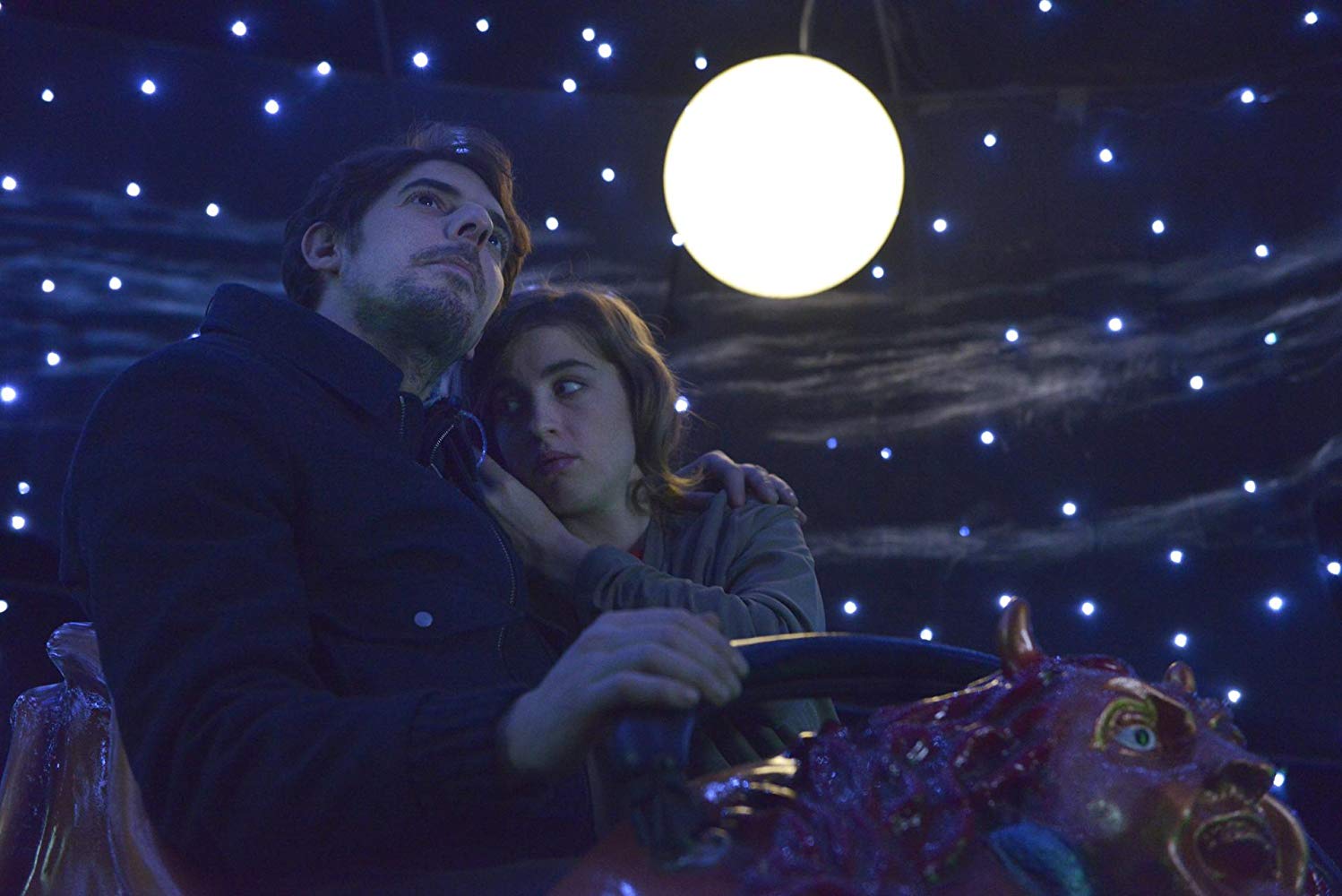For a hopeless romantic like me, the best part of watching a romantic comedy is being able to detect the lovestruck characters’ connection before they can admit the attraction themselves. In a classic rom-com, romance is idealized as a kind of dance, in which the lovebirds mirror each other’s movements as they revel in the unity of shared affection. However, French director Pierre Salvadori does not play by the rules in his 2018 film The Trouble with You (En liberté!).
The Trouble with You challenges and ridicules rom-com tropes. More specifically, it draws a parallel between being romantic and getting the perfect take in a film: both must be rehearsed and repeated many times to get exactly right. In one of the film’s most comical scenes, Antoine (Pio Marmaï, with his signature disheveled hair and dreamy eyes), returns a few days after nearly a decade in prison to his devoted lover Agnès (Audrey Tautou). Agnès, who is in the middle of cleaning the house, is caught by surprise upon Antoine’s arrival and tries to regain control of the situation. She asks Antoine to repeat the entrance several times until he does it with the proper romantic gestures and movements—she requests, for example, that he slowly open the garden’s gate, walk audibly on the gravel path, and pause on his way to the front door with mixed emotions of fear and excitement. The close-up shots intermix Antoine’s cautious correction of his movements with Agnès’s expression of growing joy in anticipating her lover’s arrival. The parody of rom-com camerawork (using close-ups and tracking shots to create excessive sentimentality) also heightens the audience’s awareness that they are watching a movie. Agnès’s orchestrating the whole scene is similar to the way in which a director or screenwriter predicts and engineers an audience’s emotional response. Through comedic effect, power dynamics between the director and the audience become more obvious and tangible.
While Agnès tries to educate Antoine about the nuances of appropriate romantic behavior, he just wants to skip the homecoming phase and start his life anew. Antoine’s life only seems to begin, however, when he meets Yvonne (Adèle Haenel). Wearing a tawny-colored trench coat and russet python booties, Yvonne could easily pass for a model on the cover of French Vogue. Little does Antoine know that Yvonne works for the Riviera Police and is the widow of the local hero Santi. After discovering that her perfect-seeming husband had framed the innocent Antoine eight years ago, Yvonne decides to go undercover upon Antoine’s date of release to make amends, however possible.
The film raises some important questions: can love set one free from a traumatic past? Does Antoine need to be “saved” by either Yvonne or Agnès? Halfway into the film, Antoine’s mental state appears so irreversibly damaged that it doesn’t seem likely that he will have the happy ending guaranteed in a rom-com. Wherever he goes, he leaves a trail of disaster (as evidenced by a smashed Ferrari and a blown-up restaurant). Ironically, Yvonne chooses to “protect” Antoine by allowing him to act on his short temper while pulling strings within the police department to make sure that he does not end up in jail again. As their relationship evolves, so do their mutual affections. The burgeoning romance complicates the question of Yvonne’s intentions. How far will she go to cover Antoine’s tracks?
The majority of the plot focuses on the burgeoning romance between Antoine and Yvonne. Unexpected as it may seem, the romance is foreshadowed by their shared neurotic habit of talking to themselves. In a beautiful and equally hilarious scene, Antoine walks on the side of a highway while Yvonne trails behind him. Without coming to know each other just yet, Antoine and Yvonne share a visual space and a state of anxiety. While Antoine murmurs, “why am I here?” in the foreground, Yvonne asks herself, “why am I following him? I used to live a wonderful life” in the background. A classic rom-com would portray a story in which Antoine and Yvonne become each other’s salvation as they break free from their pasts—Yvonne, from her broken marriage, and Antoine, from his time in jail. In this film, however, their romance is an illusion, built on a lie that causes a tremendous amount of pain and suffering. Romantic as the film’s title may sound, The Trouble with You is not a fairytale in which love conquers all challenges. The man and the woman will not end up together, and this fact might not be such an unhappy one after all.


